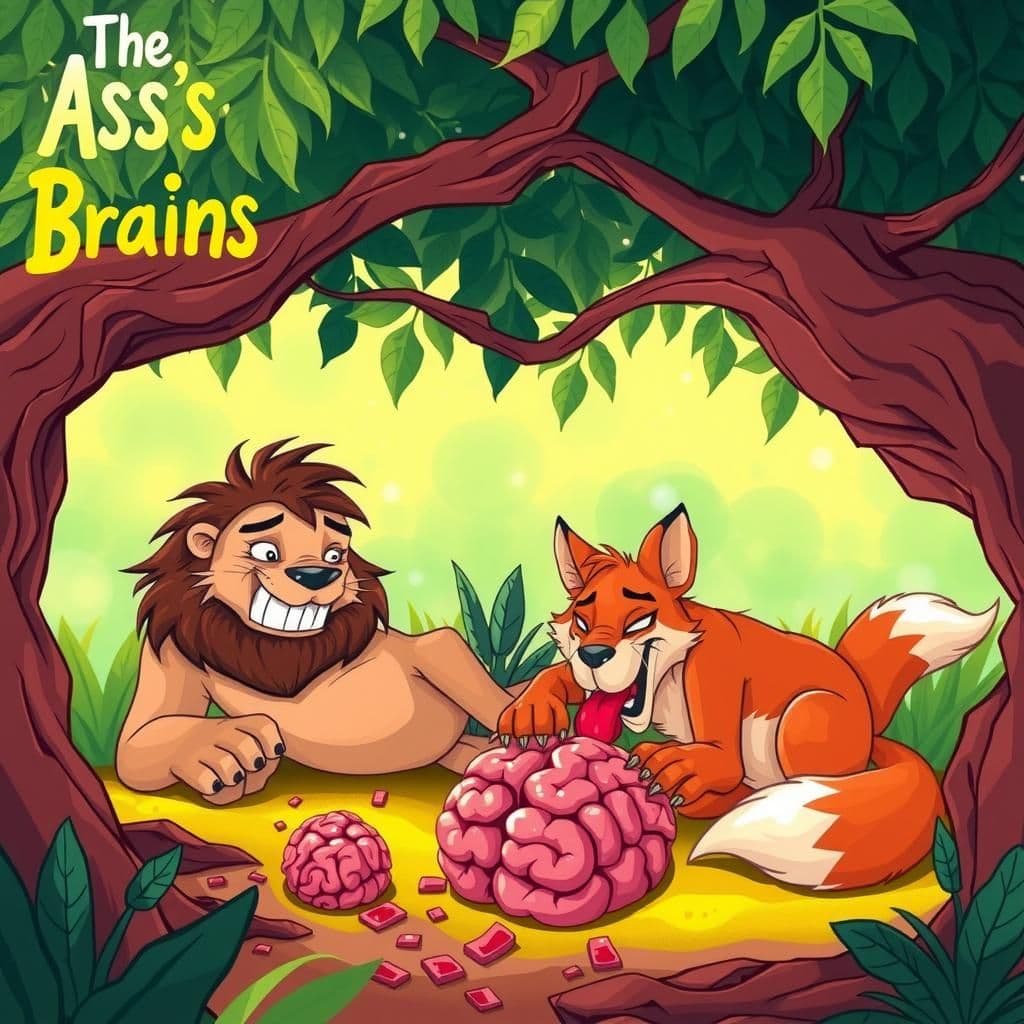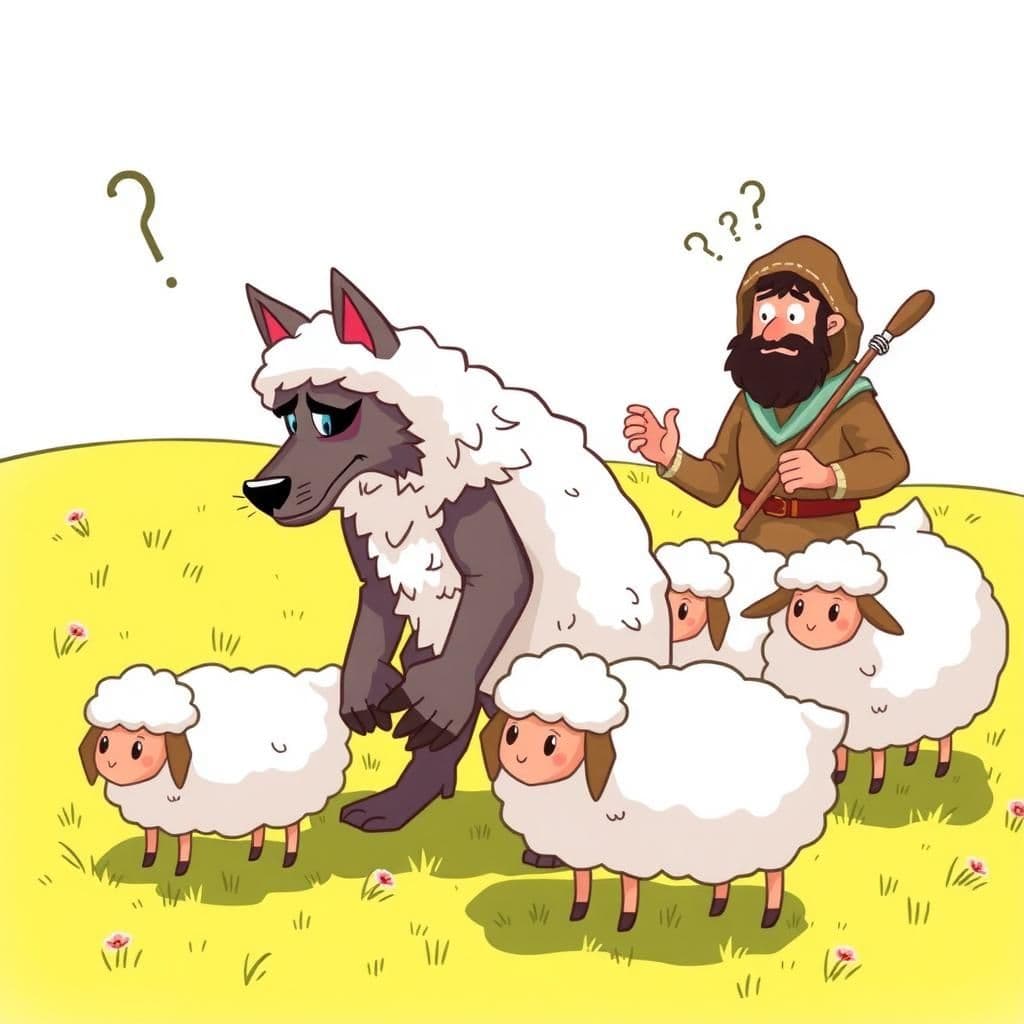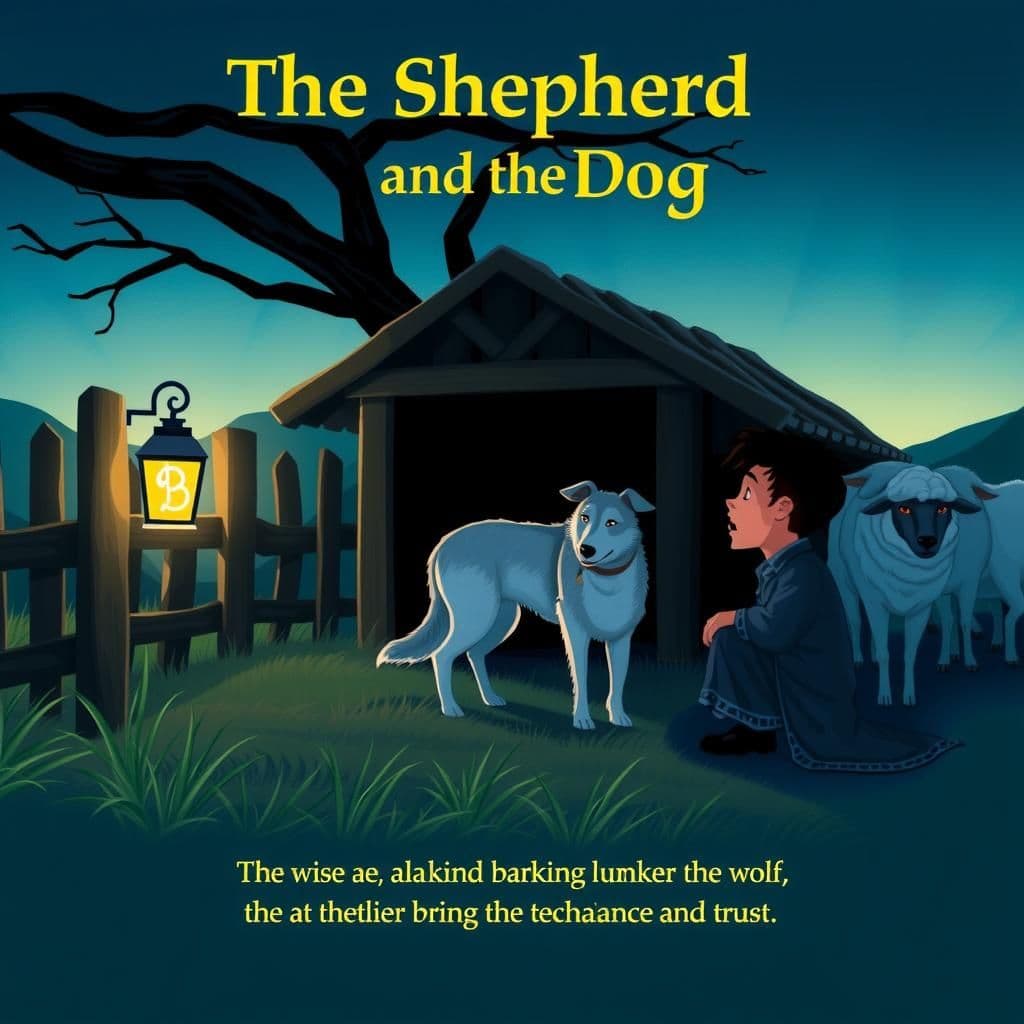The Wolf the Fox and the Ape

Story Summary
In "The Wolf the Fox and the Ape," a Wolf accuses a Fox of theft, but the Fox staunchly denies the accusation. An Ape, serving as a judge, concludes that the Wolf likely never lost anything, yet he believes the Fox is guilty of stealing. This moral-based storytelling illustrates a simple lesson from stories: dishonest individuals gain no credit, even when they pretend to act honestly, making it a fitting bedtime moral story for students.
Click to reveal the moral of the story
Dishonesty undermines trust, leading others to doubt your integrity even when you speak the truth.
Historical Context
This fable reflects themes of justice and moral ambiguity, common in Aesop's Fables, which originated in ancient Greece around the 6th century BCE. The story illustrates the complexities of truth and deception, emphasizing that appearances can be misleading and that the dishonest may not receive recognition for their integrity, paralleling moral lessons found in various cultural retellings across the world.
Our Editors Opinion
This fable highlights the complexities of trust and reputation in modern life, where accusations can often overshadow the truth. For instance, in a workplace setting, if a colleague falsely accuses another of taking credit for their work, the accused may be viewed with suspicion despite their innocence, illustrating how dishonesty can taint perceptions and lead to unjust consequences.
You May Also Like

The Ass's Brains
In the unique moral story "The Ass's Brains," a Lion and a Fox deceive an Ass into a meeting under the pretense of forming an alliance, leading to the Lion capturing the Ass for dinner. While the Lion naps, the cunning Fox eats the Ass's brains and cleverly justifies his actions by claiming the Ass must have been brainless for falling into the trap. This tale, often included in top 10 moral stories, teaches valuable lessons about wit and the consequences of naivety, making it a fitting narrative for moral stories for class 7.

The Wolf in Sheeps Clothing
In this easy small story with a moral, a Wolf disguises himself in sheep's clothing to deceive the shepherd and gain access to the flock. However, his plan backfires when the shepherd, mistaking him for a sheep, kills him instead. This life-changing story illustrates that those who seek to harm others often end up facing harm themselves, reminding us of the importance of integrity.

The Shepherd and the Dog
In the short bedtime story "The Shepherd and the Dog," a shepherd nearly makes the mistake of penning a wolf with his sheep for the night. The wise Dog warns him that this decision endangers the safety of the flock, illustrating a simple lesson from stories about the importance of discernment. This moral story for kids emphasizes that not all companions are safe, a vital lesson in choosing who to trust.
Other names for this story
"Justice Among Beasts, The Thief and the Judge, The Wolf and the Fox's Trial, Animal Accusations, Wisdom of the Ape, The Fox's Denial, A Wolf's False Claim, The Unfair Verdict"
Did You Know?
This fable highlights the theme of justice and the complexity of truth, illustrating how appearances can be deceiving and how the guilty may sometimes escape accountability while the innocent suffer suspicion. The Ape's contradictory judgment serves as a critique of flawed authority and the often arbitrary nature of judgment in society.
Subscribe to Daily Stories
Get a new moral story in your inbox every day.